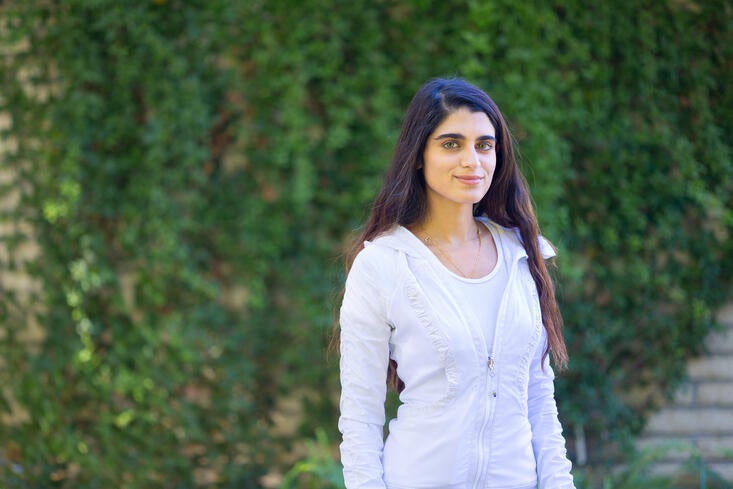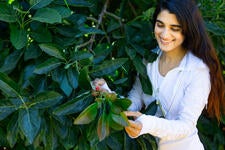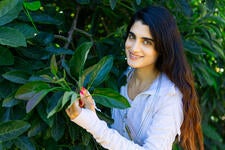Paloma Dadlani
2023 Scholarship Recipient
Paloma Dadlani is a third year Master’s student in the Department of Entomology at UC Riverside. After graduating from UC Davis with a B.S. in Entomology, she was strongly inclined towards researching pest species within agricultural systems with the aim of enhancing agricultural practices in an environmentally sustainable manner.
Paloma’s research is addressing several key issues about the avocado lace bug, Pseudacysta perseae (ALB), an invasive pest of avocados in California. ALB is native to parts of the Caribbean, Mexico, and southeastern United States. California has been invaded by ALB twice, first in 2004 by a Mexican population which was not particularly aggressive or fast spreading, and again in 2017, by a Florida haplotype which is very damaging and spreading fast, and subsequently invaded Hawai’i in 2019. ALB causes feeding damage to leaves. When feeding damage is high, defoliation may occur which results in reduced photosynthetic capacity, sunburned fruit, and stressed trees. Collectively, these negative impacts adversely affect fruit yields and ultimately results in economic losses for growers.
Research on ALB includes developmental degree-day models for ALB life stages across five different temperatures, molecular work on identifying the possible geographic origin of the current damaging population that is spreading in California. The largest part of Paloma’s research has been monthly field surveys documenting the population phenology of ALB and associated natural enemies, especially generalist predators, in four commercial Hass avocado orchards in San Diego County. This is the first major phenology study of this pest in California since 2007. It is also the first study to document the identities and phenology of key natural enemy species, especially predatory thrips, chrysopids, and mites associated with ALB. These natural enemy data play a crucial role in understanding the extent of naturally-occurring biological control of ALB populations and possible reduction of pest densities. Biocontrol services provided by natural enemies is of particular significance for the California avocado industry, because California-grown avocados are known for relatively minimal insecticide use and a strong reliance on free ecosystem services provided by biological control agents.
Paloma’s research is greatly improving our understanding of the species of natural enemies associated with ALB in avocado orchards, their phenological relationships with ALB over time, and probable levels of impact on pest population densities.
Funding provided by the Harry Scott Smith Scholarship will help support Paloma’s research on the sustainable management of ALB and enable her to attend and present her findings at grower and PCA meetings, and at the National and Pacific Branch meetings of Entomological Society of America.
Paloma's scholarship is made possible in part by these 2023 donations
A special thanks to Carol and Logan Hardison, Dr. John and Mrs. Janet Kabashima, Retha Keennan (in memory of Ray Keenan), Dr. George Markin, Gary and Kathy Veeh, Susan and Donald Deardorff, Claudia Giardina, Phil and Robin Tognazzini, Gary Cavigla and Crystal Cove Farms, and Robert, Sue Cooley, Dr. George Markin, Claudia Giardina, and the Southern California Chapter of CAPCA.




